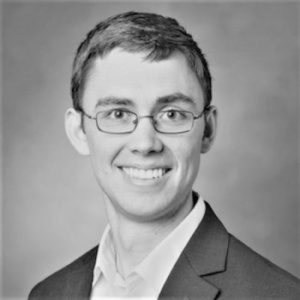
Dr. Christian Meyer
University: University of Colorado Boulder
Invited Seminar
Date: Monday June 6 @ 09:00 – 10:00
Abstract: How dynamic bacterial calcium is maintained, with kinetics faster than known mechanisms of cellular adaptation, is unknown. Herein, we discover bacterial calcium fluctuations are temporal fractals resulting from calcium dynamics self-organizing at a phase transition, a property known as self-organized criticality (SOC). SOC processes are poised at a transition between chaotic and ordered dynamics and are observed in many anthropogenic and natural systems, including neural circuits. SOC emerges due to calcium channel coupling which is mediated via membrane voltage. Environmental or genetic perturbations elicit different calcium dynamics, though always maintaining SOC, suggesting a continuum of critical attractors. We find moving along this continuum alters the collective information capacity of single-cell communities. In summary, we discover dynamic calcium equilibrium is maintained not by biological sensing, but rather by the physics of phase transitions, and our work connects ionic homeostasis in bacteria to the architecture of nervous systems in metazoans.
Supplemental information:
- Voltage-gated calcium flux mediates Escherichia coli mechanosensation
- Self-organized criticality as a fundamental property of neural systems
- Ion channels enable electrical communication in bacterial communities
Presenter Biosketch: My background is in physics, specifically nano-magnetism, which I researched during my baccalaureate at Colorado State University. However, as I turned toward graduate school I was increasingly interested in applying my quantitative background to studying problems in human health. I was fortunate to join Vito Quaranta’s Systems Biology group at Vanderbilt University where I received a NSF GRFP to study quantitative models of drug-drug interactions, colloquially known as drug synergy, in oncology. For my postdoc at the University of Colorado Boulder, I have switched to studying antibiotic resistance arising from changes in bacterial electrophysiology. Specifically, I have discovered bacteria use self organized criticality to govern calcium flux during mechanical stimulation. At the core, my research interests proceed from a desire to understand and manipulate the emergent behaviors of biological systems exposed to dynamic (time-varying) and complex (multi-component) environments.
Presenter Email: meyerct6@gmail.com
